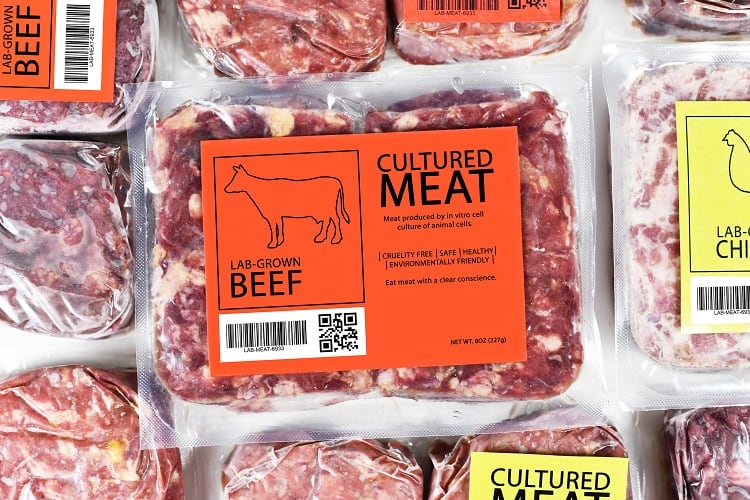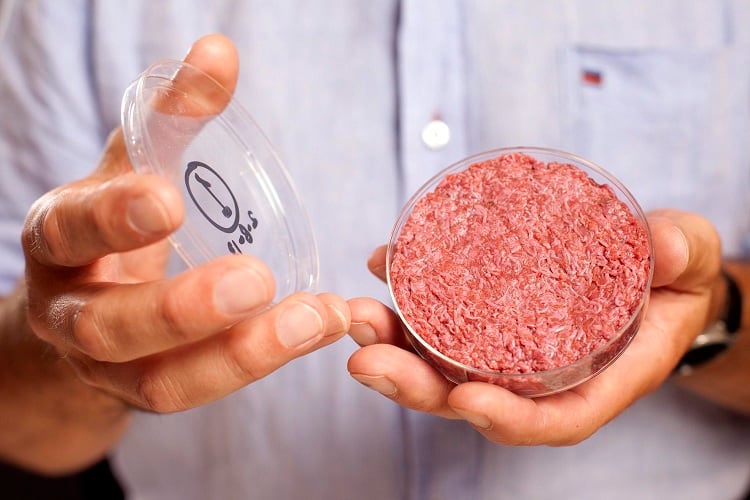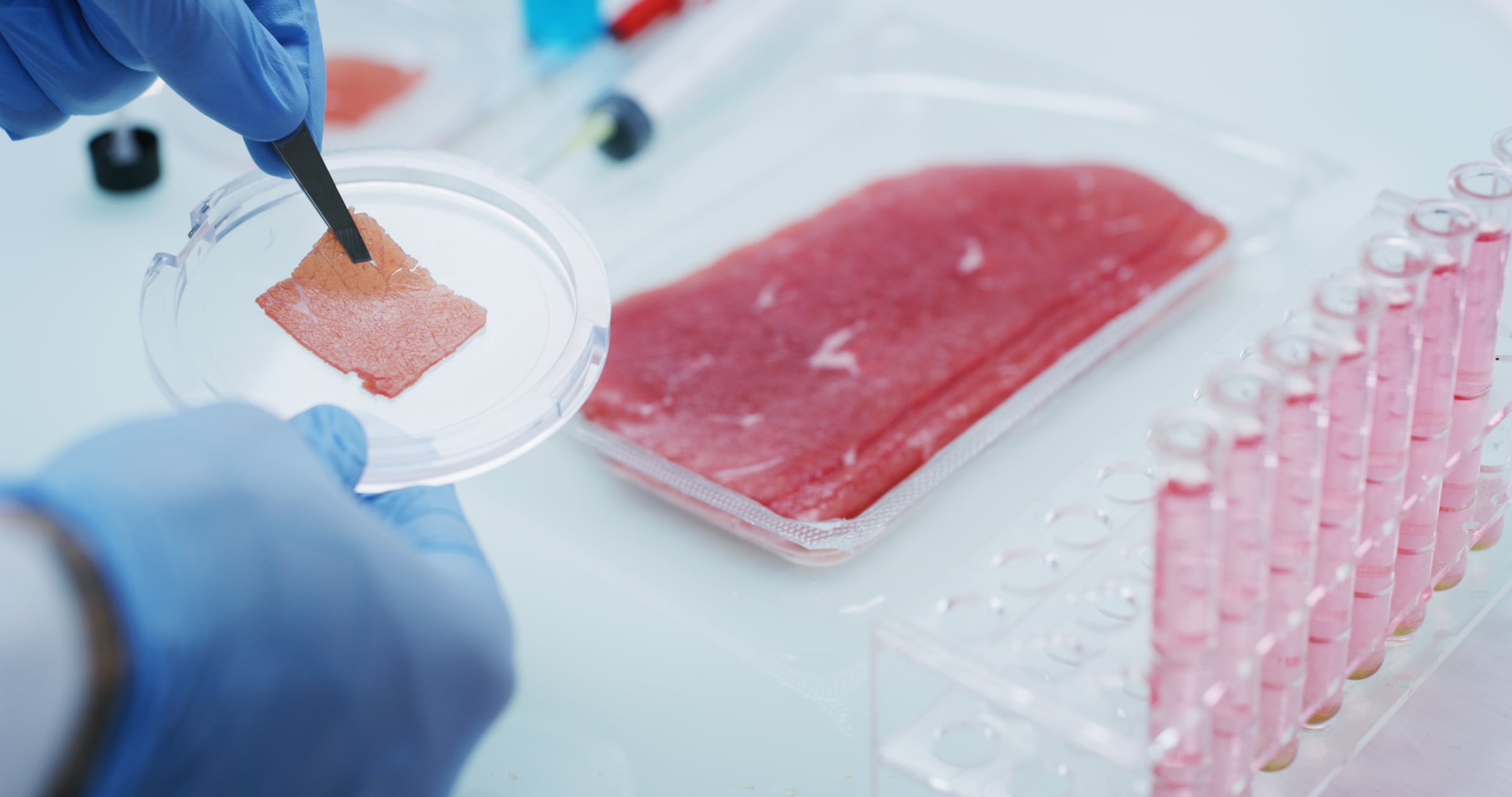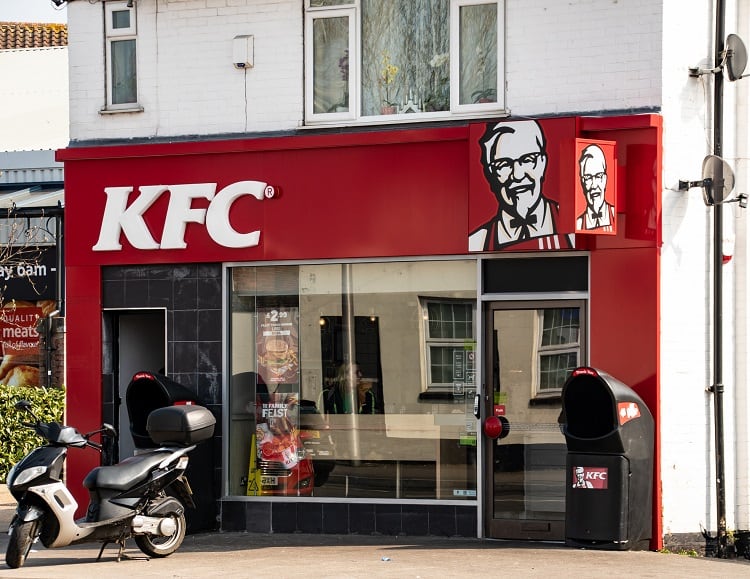Consumers are increasingly aware of the negative impacts of intensive animal farming on both the animals themselves and the environment. Excessive consumption of meat is also regularly associated with human health concerns.
While the flexitarian trend appears to be taking hold in Europe, consumers remain largely unwilling to substantially cut their meat intake.
Cell-based meat may offer a solution. Otherwise known as cultured meat, or lab-grown meat, cell-based meat is real animal meat grown from cell cultures taken from a live animal.
While cell-based meat products have yet to reach market, a growing number of start-ups – including Aleph Farms, Mosa Meat, Higher Steaks, and Gourmey – plan to commercialise their offerings in the coming years. When produced at scale, these innovators hope to reduce animal suffering, and lower the environmental footprint of meat production.
However, whether consumers are willing to eat cultured meat is far from a given. An Australian study published earlier this month in Frontiers in Nutrition revealed that 72% of consumers are not ready to accept the lab-grown alternative. Earlier surveys in the US and Europe indicate that those in the bloc are less likely to be accepting of the product, when compared to consumers across the pond.
Yet little research has been undertaken on cultured meat acceptance in France and Germany – two countries regarded to be ‘centrally important’ to European food policy.
Focusing on these two countries in particular, a team of researchers from the University of Bath in the UK, Université Bourgogne Franche-Comté in France, and Ipsos in Germany, have sought to investigate dietary identities and perceptions of cultured meat.
One thousand people were surveyed in each country and asked specific questions about their current and intended dietary habits, as well as their thoughts on cultured meat. Findings revealed there is growing acceptance of non-meat diets in both Germany and France.
Full meat-eaters vs flexitarians
The survey findings indicated that Germany is one of the most vegetarian nations in Europe. According to the researchers, for the first time, evidence suggests that German consumers not making an effort to reduce their meat consumption are in the minority.
Specifically, 45% of German respondents said they identified as ‘full meat-eaters’, with 31% deliberately following flexitarian or meat-reduced diets.
Berlin-headquartered ProVeg International, a not-for-profit that aims to halve global animal consumption by 2040, said it ‘absolutely’ expects these figures to change in the coming years.
“The number of Germans following meat-reducing diets, in particular, is one we expect to keep rising rapidly in the coming years. This is not a trend, it is a fundamental shift in consumer attitudes and behaviour,” ProVeg’s International Director, Jens Tuider, told FoodNavigator.
“The public perception of meat-reducing, and veganism in particular, has undergone a radical overhaul, shedding many of its old stereotypes. It is now seen as mainstream and normal as well as easy, accessible and desirable, closely associated with health, fitness and wellbeing.”
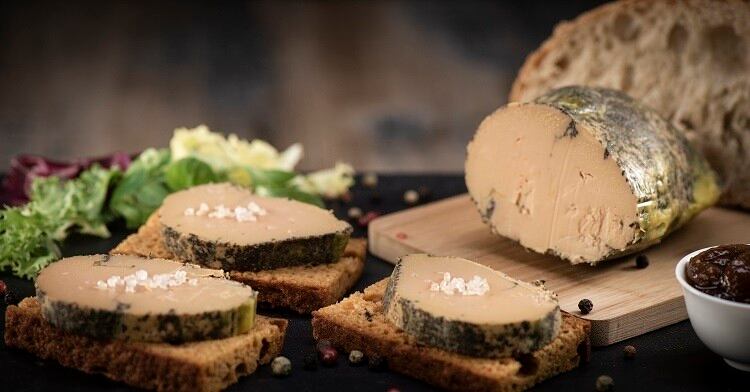
In France, meat consumption was found to be more common. Sixty-nine percent of consumers identified as full meat-eaters, with a further 26% following a flexitarian diet. Yet almost half of France’s meat-eaters said they intend to reduce animal consumption in the coming years.
According to French start-up Gourmey, which is cultivating duck egg cells to create what it describes as ‘ethical foie-gras’, these numbers show promise for the meat alternative sector as a whole.
“Twenty-six percent is already almost a third of the market, which is a huge playground for plant-based and cell-based meat producers,” CEO Nicolas Morin-Forest told FoodNavigator.
“But this is a recent trend in France: awareness of environmental and [public health] impacts of conventional meat are currently booming among the French population and the flexitarian population will keep growing.”
The CEO has also observed the plant-based category grow on-shelf – from around 300 products 20 years ago to the 5,000 available today. “It is still the very beginning, as the leading plant-based companies are just entering the French market and the first wave of local start-ups were established in 2018/2019.
“The more good alternatives to meat we have available, the more flexitarians or conscious carnivores there will be.”
Many consumers have no idea what cultured meat is
Despite growing interest in flexitarian and meat-reduced diets, study findings revealed that consumer awareness around cultured meat remains low: the majority of consumers in France and Germany had still not heard of cultured meat.
For ProVeg International’s Tuider, it is ‘only a matter of time’ before the majority of Germany’s population is made aware of these developments.
“We are still some years away from it becoming available on general sale, but the potential is huge – according to the consulting firm Kearney, cultured meat could constitute 35% of global meat consumption by 2040,” he told this publication.
Proveg International – which partly funding this study – is actively working to raise awareness and consumer acceptance of cellular agriculture through its CellAg Project (CAP), we were told.
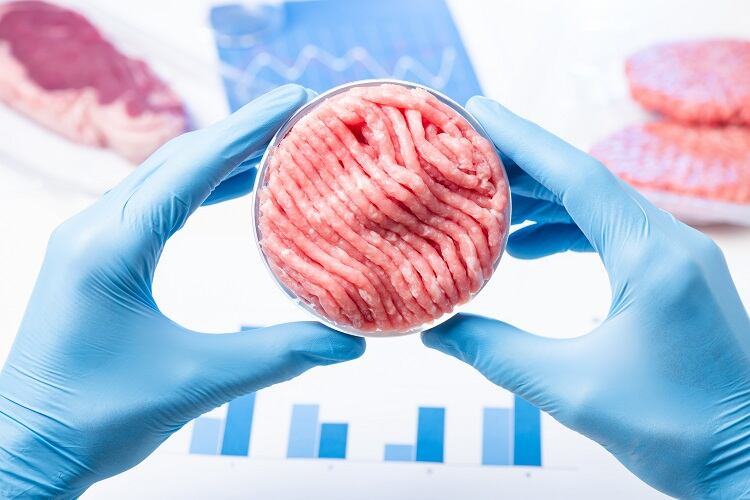
In France, where consumer awareness is also low, Gourmey says changing these ratios should be a multisectoral effort.
“So far, in most countries, start-ups are almost the only players building awareness around cultured meat. We need more support from different stakeholders, for instance institutional support, with more public money pumped into research, or NGOs advocating for the environmental benefits of cultured meat,” said Morin-Forest.
“In France, we are fortunate to have Cellular Agriculture France, the first non-profit to raise awareness of cellular agriculture, which is doing important work,” he added.
Without any cultured meat products on the market it is, understandably, more challenging to spread the message. “Awareness will dramatically change when the first products are available to consumers,” Morin-Forest told this publication. “We are just getting started.”
Promising markets for cultured meat in both countries
The study revealed that although awareness was low, 44% of French and 58% of German respondents said they would be willing to try cultured meat. Thirty-seven percent of French consumers and 56% of Germans said they would be willing to buy it themselves.
This, according to the researchers, indicates promising markets for cultured meat in both countries.
What was particularly of interest, they noted, is that cultured meat acceptance was found to be higher among agricultural and meat workers in France and Germany.
For ProVeg International, these findings could potentially be explained by an increased focus on protein – and all that it encompasses – rather than on meat alone.
“We are seeing an increasing number of meat producers viewing themselves as providers of protein rather than providers of meat, with Tyson Foods and the PHW Group in Germany, for example, investing in culture meat start-ups,” said International Director Jens Tuider.
“The benefits of this technology are clear: it uses far fewer resources, results in significantly lower climate emissions, it is better for our oceans, reduces animal suffering, and increases food safety.”
Gourmey’s Morin-Forest suggested something more uncomfortable may well be at play here. “This is a highly insightful conclusion of the study,” he said. “It suggests that the closer you are to intensive meat production, the more likely you are to prefer alternatives.
“In France and elsewhere, a lot of consumers tend to believe that animal products mostly come from traditional, family-run farms, which is unfortunately not the case. These results show that meat workers are the most aware of the problems and the need to develop alternatives.”
Another possibility could be that farmers see cultured meat as a way to address the mass demand for affordable meat, suggested the researchers. Cultured meat enables farmers to move away from intensive industrial production systems, and return to more traditional systems, which the researchers said are more harmonious with environmental and animal welfare outcomes.
This study received funding from the INNOV project at INRAE, ProVeg International, and Aleph Farms.
Source: Foods
‘European Markets for Cultured Meat: A Comparison of Germany and France’
Published 21 August 2020
DOI: https://doi.org/10.3390/foods9091152
Authors: Christopher Bryant, Lea van Nek, and Nathalie C. M. Rolland.


